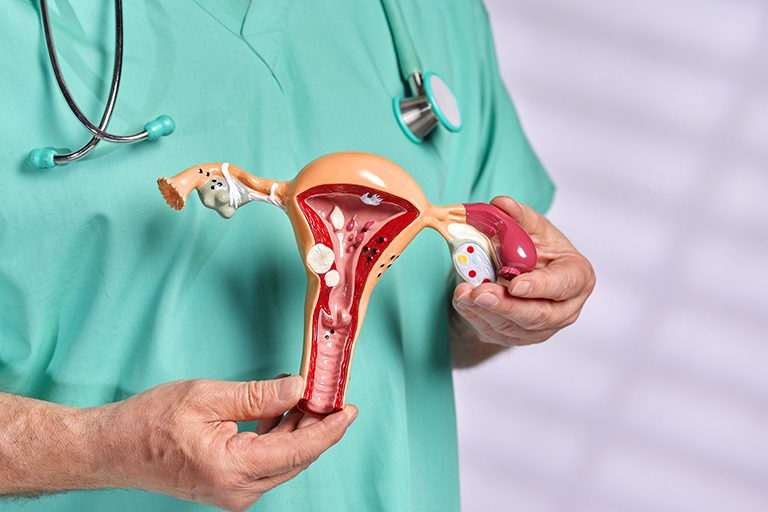Title: Understanding Ovarian Cancer: Recognizing the Symptoms and Importance of Early Detection
Subtitle: Regular Gynecological Check-ups Can Help Identify Potential Risks
—
Ovarian cancer is a disease that primarily affects women after menopause, but it can occur at different stages of their lives. The challenge in diagnosing this type of cancer early lies in the initial symptoms, which are often vague and non-specific. Nevertheless, being aware of the symptoms associated with ovarian cancer is crucial for its early detection and effective treatment. In this article, we will delve into the symptoms of ovarian cancer while emphasizing the significance of prompt diagnosis.
Ovarian cancer develops in the ovaries, the female reproductive organs responsible for producing eggs. It can either arise in the ovaries themselves or in the fallopian tubes, which connect the ovaries to the uterus. Ovarian cancer can affect one or both ovaries, and it is considered one of the most common gynecological cancers. It manifests in several forms, including epithelial cancer (the most common type), germ cell cancer, and stromal cancer.
The symptoms associated with ovarian cancer can vary from person to person, depending on the stage of the disease. It is important to note that these symptoms can also be indicative of other health conditions. However, it is crucial to pay attention to symptoms that persist for more than two weeks and stand out as different from the norm. Some common symptoms of ovarian cancer include abdominal or pelvic pain, swelling or bloating, difficulty eating, nausea, intestinal problems like constipation or persistent diarrhea, and frequent urination.
In addition to these common symptoms, there are specific symptoms that may serve as warning signs for ovarian cancer. These include abnormal vaginal bleeding, which can occur between periods or after menopause, pain during sexual intercourse (dyspareunia), persistent tiredness or lack of energy, and unexplained weight loss.
Early detection of ovarian cancer is vital for improving patient treatment and survival rates. However, diagnosing this type of cancer at an early stage can be challenging due to the non-specific nature of its symptoms. Therefore, it is crucial to pay attention to any symptoms that persist for more than two weeks and show no signs of improvement.
The diagnosis of ovarian cancer often requires a combination of different diagnostic methods. A gynecological examination, including a physical examination of the pelvis, can help detect any abnormalities in the ovaries or uterus. A pelvic ultrasound provides detailed images of the ovaries and uterus to identify any tumors. A blood test for the tumor marker CA-125, which can be elevated in ovarian cancer, serves as another diagnostic tool, although it is not specific to ovarian cancer and can be influenced by other conditions. Additionally, computed tomography (CT) or magnetic resonance imaging (MRI) can offer detailed images of the abdomen and pelvis to evaluate the presence of ovarian tumors.
To reduce the risk of developing ovarian cancer and detect any changes early on, it is advisable for women to undergo regular gynecological check-ups. Women with a family history of ovarian or breast cancer have an increased risk of developing ovarian cancer and should consider genetic testing to determine their individual risk.
In conclusion, ovarian cancer necessitates early diagnosis for optimal treatment outcomes. Recognizing the symptoms associated with ovarian cancer is crucial in identifying potential warning signs. Women should be vigilant about symptoms that persist for more than two weeks and should undergo regular gynecological check-ups to monitor the health of their uterus and ovaries. If any suspicious symptoms arise, it is important to consult a doctor for further evaluation.
